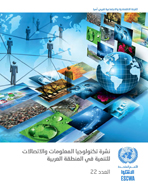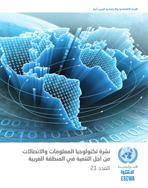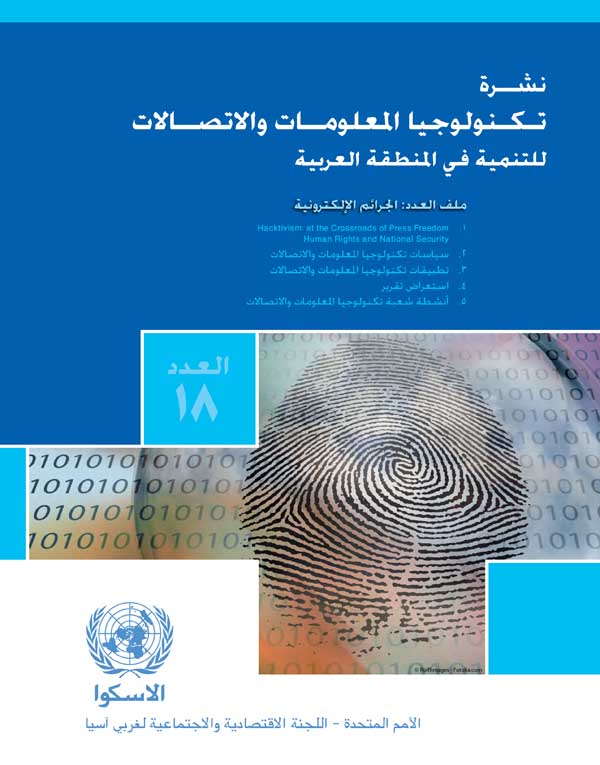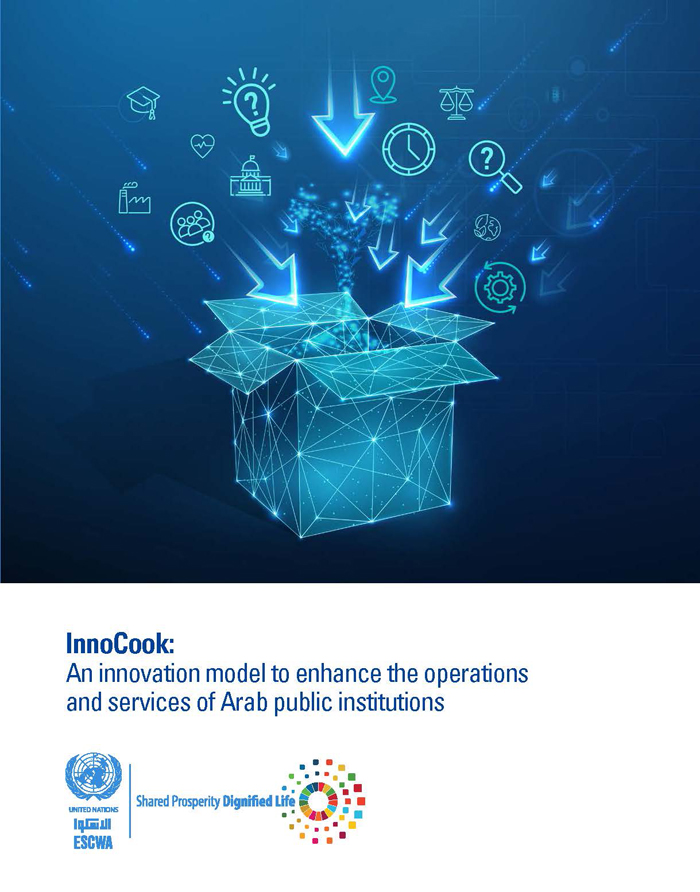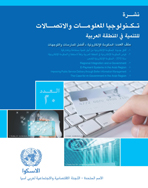
ESCWA Publication: E/ESCWA/ICTD/2013/5
Country: Arab region
Publication Type: Reports & studies
Publication Subject: Review of Information and Communications Technology for Development in the Arab Region
Cluster: Statistics, Information Society and Technology
Focus Area: Future of employment, Population dynamics & migration, Technology & innovation
Initiatives: Technology Centre
SDGs: Goal 11: Sustainable Cities and Communities
Keywords: Arab countries, Communication technology, E-government, Employment creation, Information technology, Youth employment, Employment creation, Serial publications, Economic development, Digital divide
Review of Information and Communications Technology for Development in the Arab Region, Issue 20
January 2013
There has recently been growing global interest in the provision of government services to citizens, which contribute to improving welfare, saving time, providing comfort and reducing administrative burdens associated with government services in general. Governments seek to provide these services to citizens in an appropriate environment and through multiple channels. In this context, ICT plays a very important role in improving the quality and efficiency of services.
Government services provided electronically, like other electronic services, are a promising area, given their economic and social development implications. The provision of public information stimulates the launching of innovative knowledge services, which can be developed by small and young firms. This, in turn, generates more employment opportunities for young people, and allows them to rise to improve their economic situation and meet their social needs.
The proliferation of smart phones and the popularity of mobile applications are driving these government services towards mobile platforms, which facilitate access. Therefore, a broader segment of citizens can benefit from government services.
Related content
Future of employment
, Population dynamics & migration
, Technology & innovation
,
There has recently been growing global interest in the provision of government services to citizens, which contribute to improving welfare, saving time, providing comfort and reducing administrative burdens associated with government services in general. Governments seek to provide these services to citizens in an appropriate environment and through multiple channels. In this context, ICT plays a very important role in improving the quality and efficiency of services.
Government services provided electronically, like other electronic services, are a promising area, given their economic and social development implications. The provision of public information stimulates the launching of innovative knowledge services, which can be developed by small and young firms. This, in turn, generates more employment opportunities for young people, and allows them to rise to improve their economic situation and meet their social needs.
The proliferation of smart phones and the popularity of mobile applications are driving these government services towards mobile platforms, which facilitate access. Therefore, a broader segment of citizens can benefit from government services.
